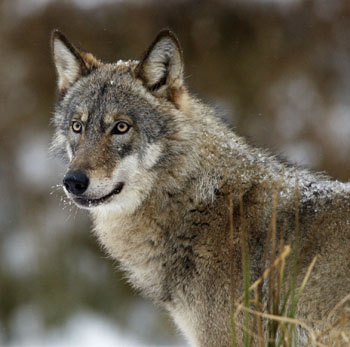
WDFW Failed miserably last year, and appears to be on the same path again wasting more dollars on a useless Facilitator to begin with.
We formally requested last June to participate in WDFWs Range Rider Program. To date their has been no response. All of WDFWs management need to be replaced! Hopefully this year they actually get deterrents out as stated when they were caught last year lying by our Huckleberry picker.
Update on Washington Wolves
Latest reports on key wolf activities, conservation efforts, and management actions
Monthly Wolf Report – January 2018
Published Feb. 1, 2018
This report provides information about wolf conservation and management activities undertaken
by the Washington Department of Fish and Wildlife (WDFW) from Dec. 22, 2017 to Jan. 29,
2018.
Carnivore Section Update
Wolf biologists spent much of December counting wolves using fixed-wing aircraft, remote
cameras, and survey of wolf tracks in known pack territories to collect data for the 2017 wolf
survey, scheduled for release in March. They have also been surveying new areas for wolf sign,
taking advantage of winter snow-tracking conditions and reports from the public. Once
compiled, that data will help to document gray wolves’ recolonization of Washington state.
Wolf biologists also conducted aerial captures on wolves in the Blue Mountains and in northeast
Washington from week of Jan. 15-20. During this effort, they were able to capture and collar
four new wolves from four packs, including Stranger, Goodman, Touchet, and Carpenter Ridge.
Left: Wolf track in Carpenter Ridge territory. Right: Photo from flights over Dirty Shirt territory.
Proactive Deterrence Measures
Wolf packs in Ferry, Stevens, and Pend Oreille counties
With calving season now underway, WDFW wildlife conflict staff has been working with livestock
producers to protect their herds. Staff are also talking with producers about the availability of
WDFW wolf deterrents, Programs such as Damage Prevention Cooperative Agreements for
Livestock and WDFW contracted range riders.
Most of these efforts were focused in Ferry, Stevens and Pend Oreille counties. Additional
coordination will continue with producers and interested NGO as calving season goes into full
swing.
Meanwhile, WDFW wildlife conflict staff initiated planning meeting for the summer grazing
season with a private industrial timber company and a statewide conservation group. Additional
meetings with the U.S. Forest Service and area livestock producers will be scheduled
throughout the next few months to solidify grazing plans.
Comments
Pingback: WDFW Failed miserably last year | Protect The Wolves